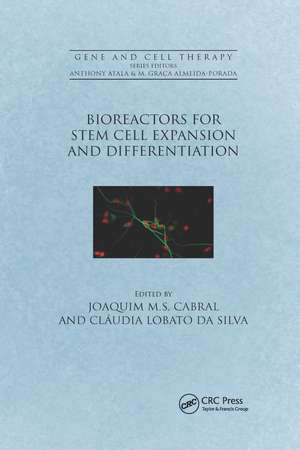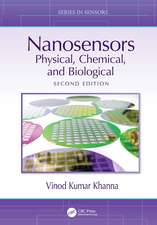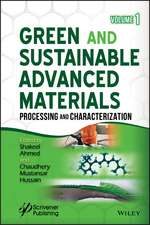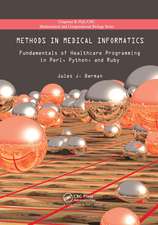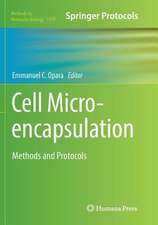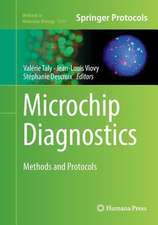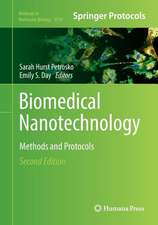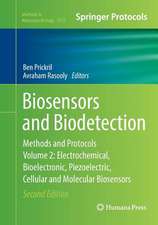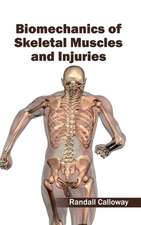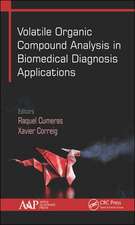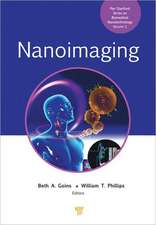Bioreactors for Stem Cell Expansion and Differentiation: Gene and Cell Therapy
Editat de Joaquim M.S. Cabral, Claudia Lobato da Silvaen Limba Engleză Paperback – 18 dec 2020
Key selling features:
- Describes various bioreactors or stem cell culturing systems
- Reviews methods for stem cell expansion and differentiation for neural, cardiac, hemopoietic, mesenchymal, hepatic and other tissues cell types
- Distinguishes different types of bioreactors intended for different operational scales of tissue engineering and cellular therapies
- Includes contributions from an international team of leaders in stem cell research
| Toate formatele și edițiile | Preț | Express |
|---|---|---|
| Paperback (1) | 451.36 lei 6-8 săpt. | |
| CRC Press – 18 dec 2020 | 451.36 lei 6-8 săpt. | |
| Hardback (1) | 766.07 lei 6-8 săpt. | |
| CRC Press – 24 oct 2018 | 766.07 lei 6-8 săpt. |
Preț: 451.36 lei
Nou
Puncte Express: 677
Preț estimativ în valută:
86.37€ • 90.42$ • 71.46£
86.37€ • 90.42$ • 71.46£
Carte tipărită la comandă
Livrare economică 07-21 aprilie
Preluare comenzi: 021 569.72.76
Specificații
ISBN-13: 9780367732936
ISBN-10: 0367732939
Pagini: 356
Dimensiuni: 156 x 234 mm
Greutate: 0.5 kg
Ediția:1
Editura: CRC Press
Colecția CRC Press
Seria Gene and Cell Therapy
ISBN-10: 0367732939
Pagini: 356
Dimensiuni: 156 x 234 mm
Greutate: 0.5 kg
Ediția:1
Editura: CRC Press
Colecția CRC Press
Seria Gene and Cell Therapy
Cuprins
Expansion of human pluripotent stem cells in microcarrier-based culture systems. Large-scale culture of 3D aggregates of pluripotent stem cells. Cardiac differentiation of human pluripotent stem cells in scalable suspension culture. Integrated processes for expansion and differentiation of human pluripotent stem cells into neural progenitor cells. Bioreactor protocols for human neural precursor cell expansion. Expansion of human cardiac progenitor cells in using microcarriers. Differentiation of embryonic stem cells towards red blood cell production. Expansion of hematopoietic progenitor cells in a hollow fiber bioreactor system. Engineering the bone marrow niche for platelet generation ex vivo and modeling of megakaryopoiesis. Packed Bed Bioreactor for the Isolation and Expansion of Human Mesenchymal Stem/Stromal Cells. Expansion of human mesenchymal stem/stromal cells in microcarrier-based culture systems. Scaffold-based perfusion bioreactors for Cell Therapies and Tissue Engineering. Vascular Tissue Engineering. Bioreactor design for bone and cartilage tissue engineering. Engineering cardiac tissue in bioreactors. Organ-level tissue engineering using bioreactor systems and stem cells. Kidney Tissue Engineering. Liver Tissue Engineering. Bioprocess monitoring in tissue engineering perfusion bioreactors. Bioprocessing of human stem cells for therapeutic use through single-use bioreactors.
Notă biografică
Joaquim M.S. Cabral is a Professor of Biological Engineering, in the Department of Bioengineering at Instituto Superior Técnico (IST), University of Lisbon, Portugal. He is the founding head of department and director of the Institute for Bioengineering and Biosciences. Joaquim Cabral's research focuses on novel developments in bioprocess engineering and stem cell bioengineering. His research includes stem cell bioprocessing and manufacturing, addressing the ex-vivo expansion, controlled differentiation and purification of hematopoietic stem cells, mesenchymal stem cells, and pluripotent stem cells (both ESC and iPSC).
Claudia Lobato da Silva is an Assistant Professor in the Department of Bioengineering, Instituto Superior Técnico, University of Lisbon, Portugal. Her research interests involve the development of novel methods to isolate and purify stem cells, and establish optimal conditions for the maximization of expansion of umbilical cord blood-derived hematopoietic stem/progenitor cells, as well as developing bioreactor strategies for the clinical-scale production of mesenchymal stem/stromal cells from different human sources.
Descriere
The authors offer novel insights into bioreactor-based culture systems specific for tissue engineering, including sophisticated and cost-effective manufacturing strategies geared to overcome technological shortcomings that currently preclude advances towards product commercialization.
